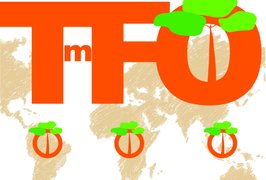Tropical managed Forests Observatory
TmFO is a pan-tropical network aiming at understanding the long term effects of logging on tropical forest ecosystems. TmFO encompasses more than 600 permanent forest plots spread across three continents (Latin America, Africa and South East Asia). The network investigates the response of tropical forests to logging, in terms of biomass dynamic, timber volume recovery and changes in species composition over time. Thanks to the large number of plots, TmFO represents a unique opportunity to gain understanding and compare forest responses at both regional and continental scales.The ultimate goal of TmFO is to propose new evidence-based logging practices that maintain long-term forest functions, environmental services provision and economic viability. These results will provide strong basis for Politics and forest practitioners to build up new guidance towards sutainable forest management and tropical forests preservation.
TmFO in brief:
- 30 experimental sites located in 12 countries and three continents (Amazon Basin, Congo basin and West Africa, and South East Asia)
- 657 permanent plots across South America, Africa and South East Asia
- 1276 ha and 6+ million trees measured
- long-term data (avg. survey duration: 19 years)
- 50+ researchers involved from 25 institutions
TmFO is coordinated by Cirad and supported by Cirad, the Consultative Group on International Agricultural Research (CGIAR) research program: Forest, Tree and Agroforestry (FTA), by ESA (European Space Agency) and the French Ministry of Foreign Affairs in support to the Alliance for the conservation of tropical rainforests. These financial supports have allowed the organization of meetings and technical workshops, PhD students, participation to international congresses and publications.
TmFO is an open network, and scientists, institutions, and NGOs interested in the resilience of managed tropical forests are most welcome.
TmFO partners
Copyright @TmFO.2014 contact@tmfo.org Updated: 22/10/2020

